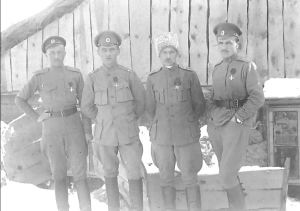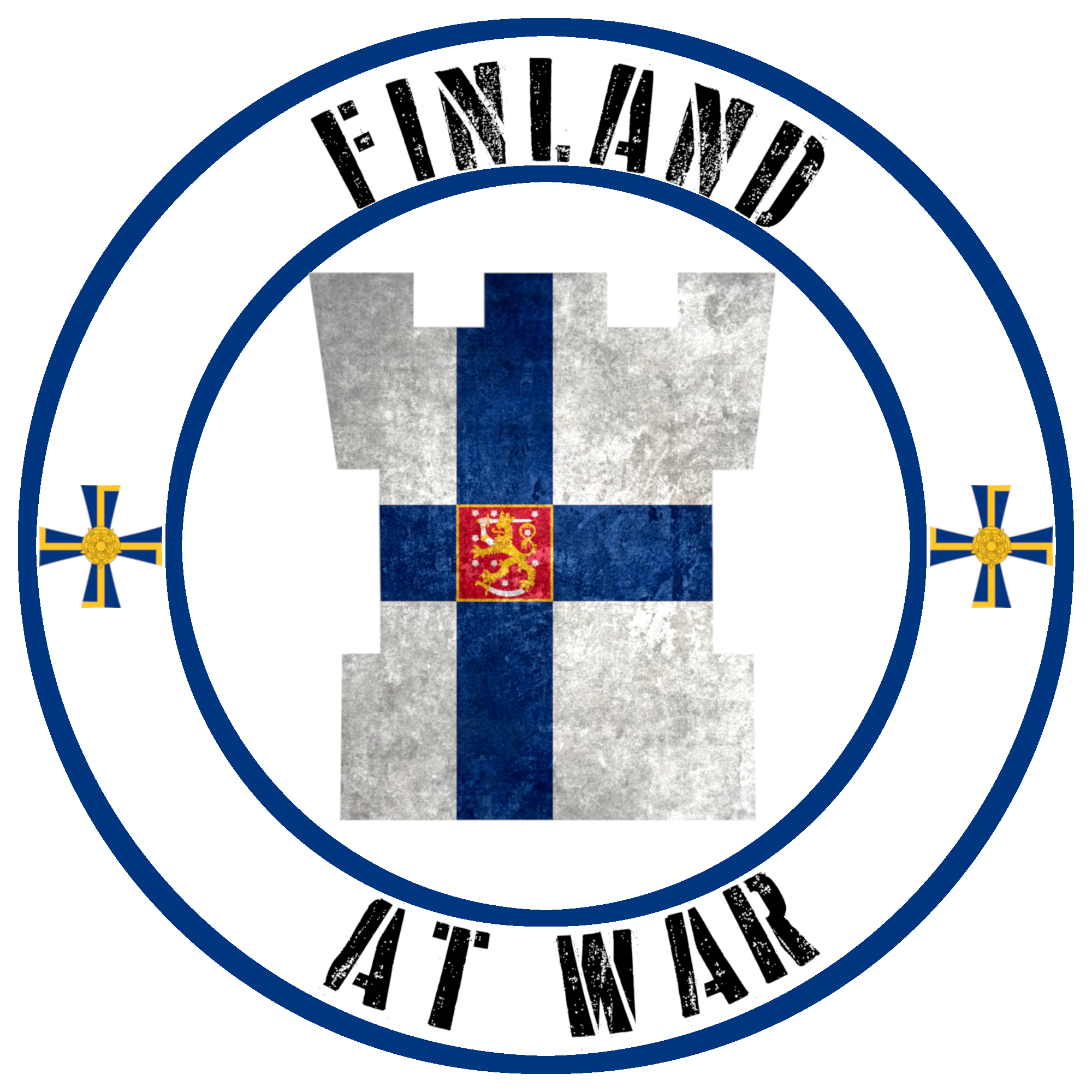
Major General
S 30.6.1876 Hanko, K 22.1.1961 Turku
30.6.1876 Hanko, Grand Duchy of Finland
22.1.1961 Turku, Republic of Finland
Born in the coastal town of Hanko, Appelgren moved to Turku in 1884 before enrolling in the Hamina Cadet Academy in 1889. Graduating as an Ensign in 1894, he was assigned to the Turkestan Artillery Brigade. Serving as a junior officer with the 7th Mountain Battery his skills were recognised and after promotion to Junior Lieutenant, he was appointed as a teacher for the Brigade Teaching Mission in 1897. Returning to his battery to take up the post of Chief of Staff in mid-1897, Lieutenant Appelgren was set on a path.
Taking up a posting as a training officer for the 4th Mountain Battery but he didn’t remain there for long. In 1902 he entered the Nikolai General Staff Academy, being promoted to Staff Captain whilst there. Graduating with honours in June 1905 and was immediately sent to serve under the Chief of Staff of the Far East. Taking part in the tail end of the Russo-Japanese War, Appelgren served as senior adjutant for the 10th Eastern Siberian Rifle Division. When the war ended, he returned to the Turkestan Military District, being made a company commander but would soon be posted to his home of Finland.
In December 1905, he took charge of the 8th Company, 8th Finnish Rifle Regiment (these units were Russian troops stationed in the Grand Duchy and not native Finnish troops). Spending only a few years with his unit at Viipuri, he would be transferred to the Amur Military District as an assistant adjutant to the Senior Adjutant. While here, he saw secondment to a Torpedo Boat squadron, served as an adjutant in the Headquarters of the 3rd Siberian Rifle Division, and chief operations officer of the district. His duties weren’t all administrative, he took part in a month long reconnaissance mission in the Ussuri region, as well as undertaking a secret intelligence mission in Ussuriysk.
Appelgren was appointed senior adjutant at the headquarters of the 18th Infantry Division in Lublin, Poland,1910. He would become the Division’s interim Chief of Staff several times, proving himself an invaluable asset to the unit. It was also while serving in Poland that he requested to be allowed to attend the Officers’ Aviation School in Hatsina, Ingermanland. Arriving in May 1911, he would graduate as an “observer pilot” later that year.
When the First World War broke out, Appelgren was Chief of Staff of the 10th Siberian Rifle Division. He took part in the Division’s actions throughout 1914-1915, operating on the North-Western Front. His actions during this period earned him the Saint George Sword. In 1916, Appelgren was made commander of the 37th Siberian Rifle Regiment, leading the regiment during the Lake Naroch offensive. He continued with the unit as it transferred to the Romanian front, facing off against Austrian and Turkish-Bulgarian forces. Appelgren was promoted in April 1917 to Chief of Staff of the 10th Siberian Rifle Division but the following month he was transferred to become acting Chief of Staff at 4th Siberian Army. He remained on the Romanian Front throughout the issues arising from the February Revolution, even temporarily becoming commander of the 10th Siberian Rifle Division. However, as the military structure broke down under the new regime, and civil war was brewing, Appelgren received orders to disband his Division. Assembling the unit in the Galatz region of Romania, Appelgren officially disbanded the 10th Siberian Rifle Division in early 1918, resigning his commission soon afterwards.
In the Fall of 1918, Appelgren travelled to the Caucasus, presenting himself to General Anton Denikin. Joining the anti-Bolshevik White Forces, he was made Chief of Staff of 2nd Division, taking part in the fighting in Southern Russia. In January 1919, he was made Chief of Staff of the French Relief Expedition. The situation was degrading rapidly and despite the best efforts of the White Forces and the French led Allies, ground was constantly lost to the advancing Red Forces. By April 1919, only the Crimean Peninsular remained in White hands, but the defenders were morally broken and the advancing Bolshevik forces easily push aside any resistance. Soon only the city of Sevastopol remained, the first assault was beaten back after several hours and with the help of the French Navy, but the commanders knew they would not be able to whether the offensive forever and a truce was agreed to in order to allow a safe evacuation. Appelgren joined the evacuation, ending up in Constantinople, where he eventually made his way to Finland.
Arriving too late to play any significant role in the newly independent nation’s struggles, Applegren volunteered for the Army Reserve. He became an instructor for the Uusimaa Southern Suojeluskunta (Civic Guard) District. He would take up various jobs, such as Custodian at the head office of Helsinki Stock Bank, Bank Branch Director and Member of the Board for an insurance company. He would also be a supporter of the Suojeluskunta, serving in various positions through the organisation. He did not officially take part in Finland’s wars between 1939-1945, but was part of the Finnish-Russian Border Commission in the spring of 1940.
He was an independent business until retiring in 1952. He passed away in Turku in 1961.
Honours and Awards
1907 – Order of St. Stanislaus 3rd Class
1914 – Order of St. Anne 3rd Class
1915 – Order of St. Vladimir 4th Class
1915 – Order of St. Anne 3rd Class
1915 – Saint George Weapon “For Bravery”
1915 – Order of St. Stanislaus 3rd Class
1916 – Order of St. Anne 2nd Class
1917 – Order of St. Vladimir 3rd Class
Ranks
1889 – Cadet
1894 – Ensign
1897 – Junior Lieutenant
1900 – Lieutenant
1903 – Staff Captain
1905 – Captain
1912 -Lieutenant Colonel
1914 – Colonel
1917 – Major General
Family
Wife – Maria (née Medinski 14.12.1879 – unknown ), married 29.04.1900, divorced 1913
Wife – Anne-Marie (née Granberg 09.08.1903 – 29.01.1940), married 04.01.1925
Son – Eugène (17.10.1900 – unknown)
Son – Stig Arvidson (03.11.1925 – 07.08.2017)
Daughter -Carita (09.08.1927 – 2018)
Son -Bengt Arvidson (10.08.1927 – 06.02.2012)
Sources
Arvid Conrad Appelgren, Biography Center, Finnish Literature Society
Volkov S.V. Generals of the Russian Empire: Encyclopedic Dictionary of Generals and Admirals from Peter I to Nicholas II, in 2 volumes. Centerpolygraph: Moscow, 2009.
Officers of the Russian Imperial Army

